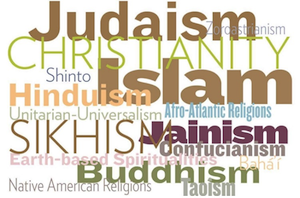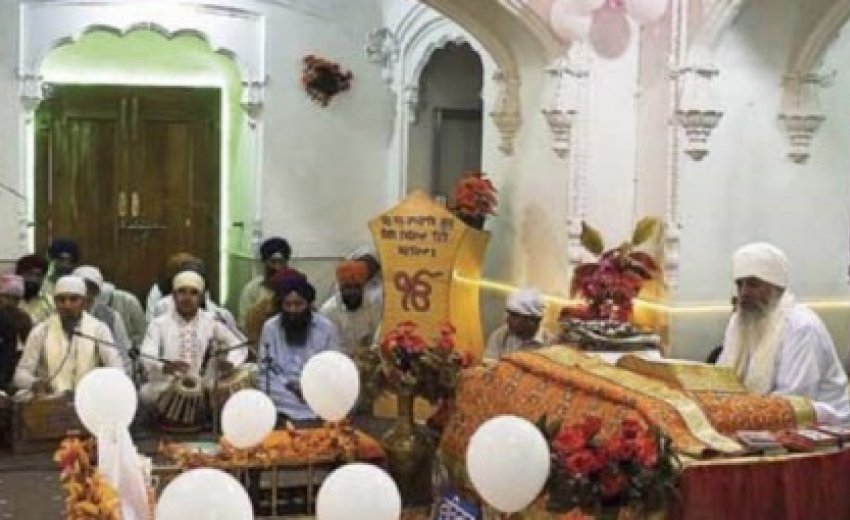I admire Pope Francis for undertaking a worldwide year of events to promote the acceptance of diversity within Christianity, which has come to accept a wide range of Protestant and Catholic beliefs. The inaugural event was a recent ecumenical service led by the Pope in Sweden. It was a run up to the 500th anniversary of Martin Luther’s challenge, which resulted in the greatest schism in western Christianity and led to a string of religious wars.
Sometime after the demise of the Prophet, the Catholic Church began to drift into hollow rituals and exploitation of the innocent under the guidance of self-appointed heirs. That exploitation gave birth to a courageous reformer, Martin Luther, a Professor of Theology who later became a priest in order to undertake church’s reformation. On 31 October 1517, Martin Luther walked to a church in the German town of Wittenberg and nailed a document – his 95 theses – to its wooden doors. That lightened the fuse of the Reformation and the birth of many Christian denominations. Then Luther burned the Papal Bull that excommunicated him.
Christian leaders and congregations will spend the next 12 months promoting activities to accept the diversity that crept into their practices and recognize the centuries of division. Francis will lead prayers asking “forgiveness for divisions perpetuated by Christians from the two traditions."
UNITY IN DIVERSITY
Diversity is a law of nature that is decisively essential not only for survival of the species but also for growth and propagation of creation. The greater the diversity of life, the greater the chance for survival. Adaptive responses to new challenges such as climate change, advancement of science, resistance against illness, and medical discoveries or economic developments are essential to not only survival but to new growth.
What is now apparent from the history of the human race is that the law of diversity equally applies to the survival and progression of cultures, ideologies and faiths. The history of Christianity as briefly described above is a powerful witness.
The Christian tale is similar to Islam where Sunni and Shia factions are daily witness to their own destruction in the absence of accepting diversity. The Sikhs too cannot escape the blame. There too evolved diversity such as Sehajdhari Sikhs, Khande-di-Pahuldhari Sikhs, Namdhari Sikhs, Nirankari Sikhs, Nanak Panthi Sikhs, Nirmala Sikhs, Dalit Sikhs, and so on. The secret of advancement in religions as Buddhism, Judaism and Hinduism lies in their acceptance of diversity.
What is pertinent to this discussion is that, in spite of several daring examples, many religious fundamentalists or fanatics continue to worship the zeal of uniformity and they continue to attempt punishing diversity among their own faith communities. Regrettably, many Sikh sangats and their governing institutions are no exception. In some places there are reports their even becoming militant to impose uniformity.
A MESSAGE OF DIVERSITY

Guru Nanak anticipated the new historical age as comprising a worldwide community of ever increasingly close-knit global villages. Here cultures and religions, which were once isolated from one another, would live as close neighbors. At the same time, new ideas and insights from science and technology will season the interaction between and among faiths, and between the faith and culture of the faith people. He, with nine successors, prepared the worlds’ communities to benefit from what was coming.all-religions-infographic
Guru Nanak’s own lifestyle, his extensive travels, his famous interfaith dialogues; they all attest to the fact that Guru Nanak was a promoter of interfaith dialogue that drove appreciation of diversity. He visited major religious centers located far and wide to promote interfaith dialogues. He wore a wide variety of religious robes popular in respective faiths and cultures. He acquired over a dozen different honorific titles by faith communities. They included, Baba, Lama, Pir, Guru, Faqir, etc.
THE COMPILATION OF THE GURU GRANTH
Guru Arjan followed Guru Nanak’s footsteps and compiled the first world scripture, the Guru Granth, where he invited multiple co-authors selected from a widely diverse backgrounds. He made use of a language which allowed for diversity, and which enjoyed wide currency in the whole of Southeast Asia as well as in the Mid-East. He employed metaphors from all cultures to encourage continual interpretation for emerging civil societies.
From the Guru Granth, we learn that each faith is inspired by a unique vision of the Divine and many faiths had developed into distinct ethnic identities within and without. Each perceives the Divine as the source of unity in diversity of creation and evolving cultures.
Guru Granth’s compilation created a philosophical system based on “unity in diversity” that celebrates the unique merits of each particular approach to the divine reality, yet it also provides a way to weld each into a cohesive common agenda. The aim was to benefit diverse civil societies.
The multiple co-authors of the Guru Granth promote appreciation of diversity and enunciate the spiritual philosophy of Ek Onkaar, the One Reality manifested in all Creation, where each individual longs for divine attributes within each person and within each creature with a sense of gratitude. The Guru Granth gives the highest allegiance to the power and grace of Truth and its creative energy that operates through every one and through all ages. Nanak’s pronouncement of the Truth as the highest religion is a powerful statement.
ਏਕੋ ਧਰਮੁ ਦ੍ਰਿੜੈ ਸਚੁ ਕੋਈ ॥ SGGS, p. 1188
In reality there is only one faith/religion (Dharma), that is, to assertively enshrine the Eternal Truth
Under the Sikh traditions, congregations of diverse compositions are welcome. A typical Sikh congregation exhibiting diversity is seen in prayers and singing conducted by variety of seeker (shown in the title photo) and sharing of a meal at the close of the congregational proceedings shown below. Diversity in the attendance of Sikh Congregations is inherent and is continually encouraged.
RESPONSE TO THE CHALLENGE
The Guru Granth challenges the religious people of the world to realize spirituality in their own faiths and work constructively with members of other traditions towards realization of the Truth. We learn that a vision of the healing light of spirituality overcomes the social and ideological issues that underlie much of the conflict between religions and the exploitation by illusionary materialism.
Let us welcome diversity within and without our society. Guru Gobind Singh sacrificed his life and his family to fight against the uniformity of the religion that the Mughals wanted to bring about.
Bhai Santokh Singh, the eminent historian, summarized Guru Gobind Singh’s accomplishment in preserving Diversity in opposition to uniformity in these powerful words (translation of the original text by the author).
Were Guru Gobind Singh not there at the critical juncture of Indian history (Mogul era), there would have been all uniformity; the diversity in religious circles, diverse scriptures and diverse modes of worship would have taken wings. In favor of one religion, the others would have been destroyed and their sacred places smashed. Sin would have replaced the virtues.
In the memory of unparalleled sacrifices of Guru Gobind Singh, let us strive for respecting diversity in our faith practices by communities throughout the world. The Universal Scripture of the Guru Granth glorified the diversity by stating that it was the wish of our creator.
ਮੇਰੈ ਪ੍ਰਭਿ ਸਾਚੈ ਇਕੁ ਖੇਲੁ ਰਚਾਇਆ ॥ ਕੋਇ ਨ ਕਿਸ ਹੀ ਜੇਹਾ ਉਪਾਇਆ ॥ SGGS, p. 1056
My Divine Creator has performed a sacred spectacle that He has created no one like anyone else.
Let us not be bitter, discriminatory or violent against those who differ from us in one thing or the other. They should not be perceived as adversaries or as competitors, but instead be acknowledged for what they are: brothers and sisters in faith. All wisdom seekers (Sikhs) must seek and promote unity in congregations, organizations, groups, institutions, and in our diaspora societies throughout the world.
Obviously, from unity I never mean uniformity.
Harbans Lal, PhD; D.Litt (hons)
Emeritus Professor and Chairman, Dept of Pharmacology & Neuroscience, University of North Texas Health Science Center.
Professor Emeritus, Guru Nanak Dev University, Amritsar, India.
President, Academy of Guru Granth Studies.
web: https://seekingwisdomblog.wordpress.com
email: [email protected]

